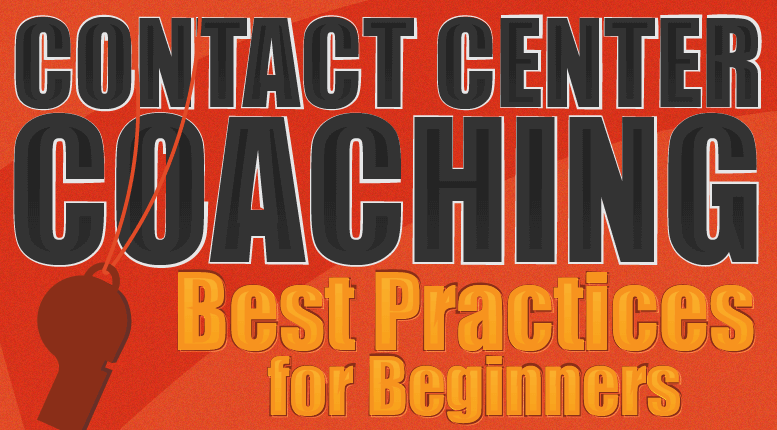
Contact Center Coaching Best Practices for Beginners
The single most important thing you can do as a contact center manager is coach your team. Studies show frequent, specific feedback increases employee satisfaction, engagement, and performance. And, it creates a culture of trust company-wide.
But, according to a study out of Interact, 37 percent of managers say they’re uncomfortable giving feedback, and a whopping 69 percent admitted to being uncomfortable communicating with their employees in general.
Yikes.
Without feedback, your agents are losing the chance to improve on their skills and performance. And you’re missing out from learning valuable development lessons, too.
Here are six contact center coaching best practices to get you on track to giving effective feedback in no time.
Be clear about the why
Before you meet with an agent, take time to think through the feedback you’re preparing to deliver. Clarify why you’re giving the feedback and how it’ll help your agent reach their goals.
For hard criticism, explain your intent to be helpful. For instance, use words that focus on the actions you want to see, and reinforce their importance by talking about why the change is important. This creates a deeper sense of purpose and “mission.” It also adds clarity and primes your agent to be more receptive.
Make feedback constructive, not critical
Every time you discuss the agent’s feedback, focus on the behavior, not the person. Don’t say, “you don’t know anything about the product.” Instead, try, “Here are some ways to increase your product knowledge…”
Make feedback personalized, not personal. Offer guidance on specific behaviors you want to see more or less of. Be humble and kind in your coaching, and make it clear that problems are not due to some unfixable personality flaw.
Include praise
Praise seems like it should be easier to give than criticism, but too many managers leave it out of their contact center coaching. They worry about coming across as patronizing or insincere, or they simply don’t want to spend the time looking for the good. But it’s imperative to look for the good stuff if you want to replicate the behavior.
As a society, we’ve trained ourselves to ignore all the great little things people do each day because we’ve decided that’s what they’re supposed to do. It’s just their job. You’re right, it is. And it’s okay to tell your agents when they’re doing their job well, even if that’s what’s expected.
Get specific
If I say, “You did a great job on that call,” it might make you feel good about your performance, but it won’t necessarily help you do a great job next time. If I say, “On that call, I noticed you took time to speak directly to the problem, and the discussion after that was calmer and more productive,” you’ll know exactly what was great about your performance and you’ll recognize how to replicate it.
Get specific with your agents. They shouldn’t have to take you at your word. Most contact centers track call data and agent performance metrics. Collect and analyze the information before your coaching sessions and use it to frame your feedback. Saying “Your calls are 30 percent longer than other agents,” is more helpful than, “Your calls take too long.”
Don’t spoon-feed your agent
One-way conversations are for performance reviews not coaching sessions. Challenge your agents to engage and participate in the conversation. Clarify your feedback, and have them give their interpretation. Have them analyze their own performance and suggest things that would speed their improvement.
Take the opportunity to perform role-playing exercises, too. If the agent had trouble in a specific situation, recreate it in the coaching session with you playing the part of the customer. Talk through the scenario. Then give live feedback to prepare your agent for the next time the issue pops up.
Remove roadblocks
Your contact center coaching session might uncover external roadblocks to an agent’s success. Slow computers, noisy work environments, and chilly room temperatures could all be making it hard for the agent to concentrate and do their job properly.
Maybe the roadblocks aren’t in the environment, but in the process. Perhaps the agent tried to help a customer, but couldn’t because the system didn’t give them the authorization to do so. Or maybe they wanted to help a customer with a new product but weren’t given adequate training.
The job of a leader is to help agents do their jobs better. And a critical piece of coaching is giving direct and specific feedback. The above tips will help get you started, and it’ll become easier as you refine your technique and know your team better.

